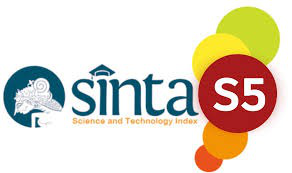- Focus and Scope
- Section Policies
- Peer Review Process
- Publication Frequency
- Open Access Policy
- Archiving
- Publication Ethics
- Plagiarism Check
- Copyright and License
Focus and Scope
International Journal of Quantitative Research and Modeling (IJQRM) is published 4 times a year and is the flagship journal of the Research Collaboration Community (RCC). It is the aim of IJQRM to present papers which cover the theory, practice, history or methodology of Quatitative Research (QR) and Mathematical Moodeling (MM). However, since Quatitative Research (QR) and Mathematical Moodeling (MM) are primarily an applied science, it is a major objective of the journal to attract and publish accounts of good, practical case studies. Consequently, papers illustrating applications of Quatitative Research (QR) and Mathematical Modeling (MM) to real problems are especially welcome.
- In real applications of Quatitative Research (QR) and Mathematical Moodeling (MM): forecasting, inventory, investment, location, logistics, maintenance, marketing, packing, purchasing, production, project management, reliability and scheduling.
- In a wide variety of environments: community Quatitative Research (QR) and Mathematical Moodeling (MM), education, energy, finance, government, health services, manufacturing industries, mining, sports, and transportation.
- In technical approaches: decision support systems, expert systems, heuristics, networks, mathematical programming, multicriteria decision methods, problems structuring methods, queues, and simulation
|
|

Section Policies
Articles
Peer Review Process
Publication Frequency
International Journal of Quantitative Research and Modeling (IJQRM)
is published 4 (four) times a year: March, June, September and December
Open Access Policy
This journal provides immediate open access to its content on the principle that making research freely available to the public supports a greater global exchange of knowledge.
Archiving
This journal utilizes the LOCKSS system to create a distributed archiving system among participating libraries and permits those libraries to create permanent archives of the journal for purposes of preservation and restoration. More...
Publication Ethics
International Journal of Quantitative Research and Modeling (IJQRM) and is the flagship journal of the Research Collaboration Community (RCC), it is the aim of IJQRM to present papers which cover the theory, practice, history or methodology of Quantitative Research and Modeling (QRM). However, since QRM is primarily an applied science, it is a major objective of the journal to attract and publish accounts of good, practical case studies. Consequently, papers illustrating applications of OR to real problems are especially welcome. This statement of scientific code of ethics is a statement of code of ethics for all parties involved in the publication process of this scientific journal, namely the writer, editor, reviewer.
1. Standard for Authors
- Article standard, Authors must certify that their manuscripts are their original work. Plagiarism, Duplicate, Data Fabrication and Falsification, and Redundant Publications are forbidden.
- Authenticity and plagiarism, Authors must ensure that their work is fully original, and if the author has used the work and words of others who have been quoted or quoted correctly.
- Multiple publications, Author should not publish manuscripts that descriptively describe the same research in more than one journal or other publication. Sending the same text to more than one journal simultaneously is unethical and unacceptable publishing behavior.
- Fundamental mistake, when an author discovers a significant error or inaccuracy in his/her own published work, it is the author's obligation to promptly notify the Journal editor or publisher and cooperate with the editor to retract or correct the paper.
2. Standard for Editorial Board
- Confidentiality, editors and section editors are prohibited from providing any information about manuscripts sent to anyone other than writers, sustainable partners, the editorial board, and other publishers.
- Decision of Publication, journal editors are responsible for determining which articles are published. The editors can solicit input from the journal editorial board and available tools to deal with copyright infringement and plagiarism. The editors can discuss with other editors and reviewers to make this decision.
- Conflict of Interest, unpublished material written in the submitted text may not be used in the editor's own research without the written consent of the author.
- Manuscript Review, the editor must ensure that each manuscript is evaluated by the editor in relation to originality and uses peer reviewers that are appropriate for articles that are deemed to be published by selecting people with sufficient expertise.
3. Standard for Reviewers
- Confidentiality, every text received for review must be treated as a confidential document. They may not be shown to others except those authorized by the editor.
- Objectivity Standards, the review process must be carried out objectively. Personal criticism for writers is not right.
- Speed, every selected reviewer who feels ineligible to review the manuscript must notify the editor and resign from the review process
- Decision, Reviewers must bring to the attention of the Editor Board any information that may be a reason to reject publication of a manuscript.
- Disclosure and Conflict of Interest, Reviewers must notify IJQRM of any conflicts of interest.
Plagiarism Check
Copyright and License
International Journal of Quantitative Research and Modeling (IJQRM) is using CC-BY license as the optimal license for the publication, distribution, use, and reuse of scholarly work.
Authors retain copyright and grant the journal right of first publication with the work simultaneously. International Journal of Quantitative Research and Modeling (IJQRM) is licensed under a Creative Commons Attribution 4.0 International.









